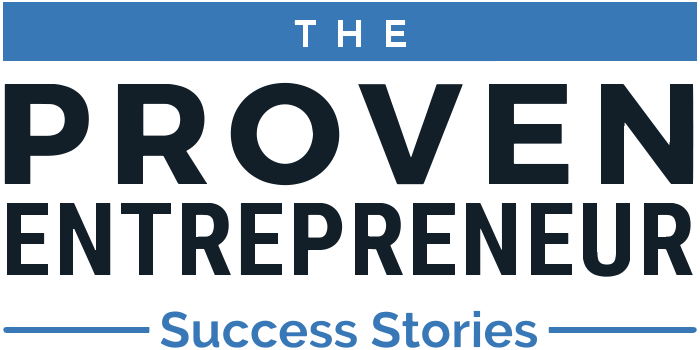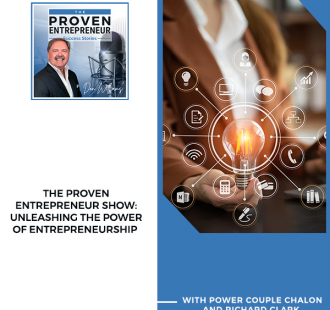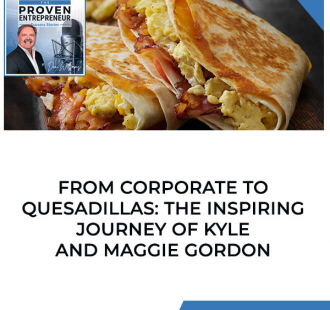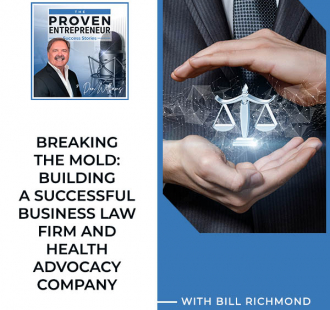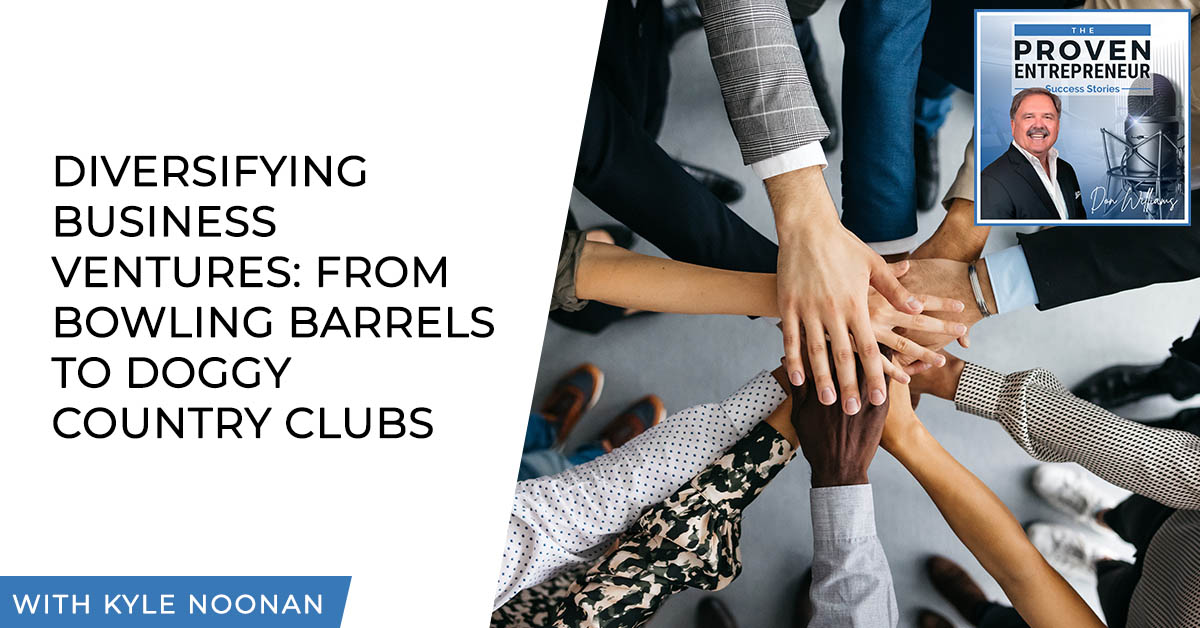
Hey there, podcast lovers! This is Don Williams, and I am thrilled to present to you the latest episode of the proven entrepreneur show. Get ready, because today we have a special guest, Kyle Noonan, joining us for an incredible conversation that will leave you inspired and motivated.
Kyle takes us on a journey through his entrepreneurial path, sharing how he and his best friend built their empire from the ground up. From investment banking to opening their first brand, FreeRange, it’s been a wild ride of success and lessons learned.
But it’s not just about the success stories. Kyle dives deep into the importance of work ethic, perseverance, and the power of surrounding yourself with talented individuals. He emphasizes that execution is key, and it’s not always about the idea itself.
As we listen to Kyle’s stories, we gain valuable insights into the world of entrepreneurship. We discover that it’s not just about being the smartest person in the room, but rather creating a team that complements each other’s strengths.
So, what are you waiting for? Tune in now to this enlightening episode and hear firsthand from a true entrepreneur who has navigated the challenges and triumphs of building a successful business. Discover Kyle’s secrets to being a visionary leader and how to position yourself for long-term success.
Don’t miss this opportunity to gain invaluable advice and inspiration from Kyle Noonan. Head over to our website at thefreerangeconcepts.com or find us on social media at Kyle Noonan to join the conversation and learn more about his incredible journey.
Trust me, you do not want to miss out on this captivating episode. Get ready to be motivated, inspired, and equipped with the tools you need to thrive in your own entrepreneurial journey. So, buckle up, hit that play button, and let’s dive deep into the mind of a proven entrepreneur. Enjoy!
In this episode of The Proven Entrepreneur Show, host Don Williams sits down with Kyle Noonan, co-founder of FreeRange Concepts, to discuss his entrepreneurial journey and the secrets to his success. From humble beginnings to building a thriving business empire, Kyle shares valuable insights and practical advice for aspiring entrepreneurs.
Topics Discussed:
- The story behind FreeRange Concepts and its various brands.
- The importance of trust and shared values in business partnerships.
- The evolution and success of their dog-friendly concept, Mutz.
- The expansion plans and future locations of FreeRange Concepts.
- Kyle’s unconventional career path and the Role of work ethic in Entrepreneurship.
- The significance of execution and hard work over ideas.
- The value of humility, seeking advice, and building a strong team.
- Lessons learned from past failures and the importance of patience.
- Kyle’s personal journey as a young entrepreneur and the impact of family.
Entities Mentioned:
- Don Williams – Host of The Proven Entrepreneur Show.
- Kyle Noonan – Co-founder of FreeRange Concepts.
- FreeRange Concepts – A hospitality group that includes various restaurant and bar concepts.
- Mutz – A dog-friendly concept within FreeRange Concepts.
- The General Public – An American gastropub whiskey bar.
- Jolio Fine Tex Mex – A Tex-Mex restaurant named after Kyle’s grandfather.
- Papado’s Seafood Kitchen – A restaurant where Kyle began his career.
- Houston – The city where Kyle had a pivotal conversation about his future.
- COVID – The pandemic that affected the operations of FreeRange Concepts.
Don’t miss this inspiring episode filled with valuable insights and practical advice from an experienced entrepreneur. Tune in now!
For information on how to work with Don visit Work With Don Williams
You can also reach out to Don Williams at https://donwilliamsglobal.com
Please join Don and his businesses in support of St. Jude’s Children Research Hospital in its Mission to cure Childhood Cancers. You can donate to St. Jude at stjude.org/donate
—
Watch the episode here
Listen to the podcast here
Diversifying Business Ventures: From Bowling Barrels To Doggy Country Clubs With Kyle Noonan
In this episode, I have maybe a double-proven entrepreneur. I have Kyle Noonan with FreeRange Concepts. Kyle, welcome to the show.
Thanks for having me. Did you say double because I have put on a few pounds?
No. I said double because of how fast you’ve moved through your entrepreneurial journey.
It has been a whirlwind. You think about a lot coming at you and it’s going to happen fast, and it doesn’t. When you look back on it, this happened pretty fast.
Yours has happened pretty fast. Tell us what you are all doing entrepreneurially.
My company is called FreeRange Concepts. I started it with my college roommate. We went to SMU together. He and I have been best friends since we were eighteen years old when we got assigned together in the dorms. After college, we went our separate ways professionally. I was an Art major, Painting and Sculpting major. He was a Business major. In our fraternity, he was the president and I was a social chair. We’re left brain and right brain, yin and yang. Professionally, we went our separate ways but always stayed close personally.
We both went into different careers. He went into investment banking, the private equity world, the Wall Street thing. I went into the restaurant business because I found out that being a starving artist was not very much fun. I started waiting tables in college and ended up figuring out that I liked the industry. I ran a company called Pappas Restaurants for about thirteen years. Pappadeaux, Pappasito’s, Pappas Bros. Steakhouse, that company. After about thirteen years in post-college, he and I decided we were going to join forces and start our own company. FreeRange Concepts is a hospitality company. We’ve created several brands within our portfolio and we’ve done well. It’s been crazy. It’s been a wild ride.
I love that, the left brain right brain, separate skills but complementary. That’s a key concept for a lot of successful entrepreneurial companies.
There is no doubt that is a tremendous component of our success, having all of our bases covered. Beyond that, we have the same core values but different skill sets. We trust each other implicitly for the other person to do their job. I stay in my lane. He stays in his lane. If it comes time to make a big decision, if one of us votes no, it’s a no and we’re not even discussing it. There’s a lot of trust there that has been a huge component of our success.
Can’t do it without trust. How many brands are at FreeRange?
We have 5 different brands and 14 restaurants in total. Our first brand and how we got started in the business is Josh, my partner, called me up one day and said, “Do you want to go bowling tonight?” I was like, “Sure. I haven’t been bowling in probably since I was four years old but where do we go?” He was like, “I don’t know where a bowling alley is.” We started looking and realized there were no bowling alleys close.
We thought, “Maybe this is our opportunity to do that thing that we’ve always talked about doing but we didn’t know what.” I knew the hospitality world, but I didn’t know bowling. He didn’t know bowling, but he knew the real estate world. We hired a bowling consultant and they did a study of the Dallas area and found out that it was a perfect market where there was no competition to put up a bowling alley. Our first concept is called Bowl & Barrel, and it’s over by Northpark Mall. We opened that a couple of years ago. We just celebrated our ten-year anniversary.
Congratulations.
Thank you. We have 3 of those now, 1 in Dallas, 1 in San Antonio, and 1 in Houston. The next concept that we opened was six months later. It’s called MUTTS Canine Cantina®, which is a restaurant bar that overlooks a private membership-based dog park. It’s a country club for dogs. The dogs are the paying members. We have what we call Bark Rangers in the park that pick up after the dogs and make sure the dogs have water, toys, and all that stuff. You get to sit back and drink a glass of wine or a margarita under an oak tree and watch your dog socialize.
That idea came about because we were sitting on a patio and we saw a woman with her little dog. She tied it up to a chair and the dog saw a squirrel and ran off and took the chair with her. We were like, “Dogs are such a part of the family now. Maybe there’s an opportunity to not make a restaurant that allows dogs to be there, but a restaurant that is for dogs.” That’s how that idea came about.
We opened our third concept three months after MUTTS. We’re talking in a nine-month period. We went Bowl & Barrel, MUTTS, and then we opened a concept called The Rustic, which is a restaurant and bar that overlooks a 3000-person outdoor concert venue. All three locations opened to huge success, which was great. The bad thing was we were understaffed and didn’t have the resources or the team built out or anything that we needed to handle the volume. It was a challenging first year but a good problem to have.
Going back to MUTTS, we have three MUTTS open. We’re building Austin, El Paso, Denver, and Scottsdale which will all open this 2023. That will put us up to seven MUTTS locations. The Rustic, we have four. We have Dallas, San Antonio, and two in Houston. We are under construction for Scottsdale, Denver, Orlando, Charlotte, and San Diego. Also, we’re putting a Rustic in Houston Hobby Airport.
Our fourth concept is called The General Public. The idea came about because when we opened our original Bowl & Barrel here in Dallas, there was a crummy bar next to us that was always busy. I got to know the owner of the bar. I was like, “Where’s your business coming from?” He goes, “Honestly, Kyle, it’s coming from you.” I was like, “What do you mean?” He said, “You’re on a 2 to 3-hour wait every night. People go put their names on the list, come over, have drinks with us, and then go back and bowl.” I was like, “Okay.” Moving forward, instead of feeding our neighbor, we’re going to be our own neighbor.
We created an American gastropub, whiskey-centric bar called The General Public that we now put next door to all of our Bowl & Barrels. We have two of those, San Antonio and Houston. Our last concept, which we opened here in Dallas is called Joe Leo Fine Tex Mex. It’s named after my grandfather, Joe Leo Romero, who was the greatest guy in the world. We wanted to do something that honored him. That’s doing well too.
That’s awesome. It’s so diverse, not in the same lane. I love that. I’m going to take you all the way back to young Kyle, 5 to 18 years old. In the household where you were raised, was there someone in the household who was an entrepreneur and set an entrepreneurial example?
No. My dad was an attorney. I have young parents. My mom was 19 and my dad was 21 when they had me. My dad was going through law school then and my mom was doing odd jobs to support the family. My dad had a good law career so he supported the family. We had a great childhood. I did get to see this arc that my parents went on. We didn’t have money. Humble means. By the time I moved out of the house, my parents had made enough money to be able to afford college for me, which I didn’t think was going to be the case when I was 10 or 12.
I got to see this hard work pay off for my dad. He was a company man, but I got to see what hard work did for a family. A big component of my growing up is seeing the effort put forth, the persistence, and consistency of doing it day in and day out for years when it does. I didn’t get it necessarily an entrepreneurial bug from my parents, but I got a work ethic from my parents.
That’s the thing. When I talk to young entrepreneurs, the first thing I always hear is, “Kyle, I have this great idea for something.” I’m like, “Okay, cool.” It’s 1% idea and 99% work and execution of that idea. We can sit here all day long and think of great ideas. Can you execute the idea? That takes perseverance, dedication, and consistency. That’s the hard part about being an entrepreneur.
After your childhood years, did you go to college for entrepreneurship?
No, I was a Painting and Sculpting major, an Art major. The fact that my parents let me do that was crazy. That’s what I was good at and I liked it. I was always a creative kid. I had a passion for it. It didn’t have much in the way of a career choice afterward. Hence, the restaurant business.
Certainly, you’re using your creative brain in your business. After you graduated from university, did you get a job or you start your first company?
When I was in college, I was waiting tables for the Pappas family at Pappas Seafood Kitchen. In my senior year, they offered me a management position. I was like, “It’s got to be better than waiting tables. I’ll do that.” I was a supervisor during my senior year of college and I stayed on with that company.
Solid restaurant chain.
No doubt. I eventually worked my way up to Director of Operations for the organization and ran the Pappadeaux, Pappasito’s, and Steakhouse brands until I finally decided to leave.
That was pretty lofty position for a young man.
I was a hard worker. Not to brag, but I was the youngest GM in the company by far. I remember my parents were angry at me when I was graduating. They said, “What are you going to do?” I said, “I’m going to be a restaurant manager.” They were like, “You didn’t go to SMU and get a $200,000 education to go be a restaurant manager.” I didn’t listen to them and I did it. I’ll never forget it. It was about eighteen months later that they offered me a GM job at the largest Pappadeaux in Chicago, which is 3 stories, 2 kitchens, 4 bars, this big massive property.
I called my mom and I was like, “Mom, I got offered a job to move to Chicago and I’m going to take it.” I told her how much they were going to be paying me. There was a long pause. She goes, “Kyle, I’m so glad you didn’t listen to me. It took your dad ten years of being a lawyer before he made that money.” It was a great organization. Being there for the time I was there gave me the skillsets that I needed to execute in the industry that we are in. I always had the creative side back behind me.
Here is an interesting story about the reason why I left that company. The company is owned by two brothers, Harris and Chris Pappas. They’re based out of Houston, Texas. I was still in Chicago at the time. They called me one day and said, “You jump on a flight tomorrow, come down, and have dinner with us in Houston.” I said, “Sure.” I flew down and they took me out. I was 30 at the time.
They said, “We want you to know you will always have a position in this organization. We love you and you will have a great job here as long as you want it. However, we know you’re an ambitious young man. This is a family company and your last name isn’t Pappas. You’re never going to own the company. We want to be fair to you and let you know that you’ll always be a well-paid employee, but you will not be more than an employee.”
A fine example of integrity.
That’s what sparked my desire to be an entrepreneur. I didn’t think in those terms at that point in my life. I was making good money. I had a great job. I worked for a great company. I had a young family that I was providing for. Having that conversation with them put something in me that was like, “I do want to own the company.” They saw it before I saw it in myself, which is interesting. I stayed with the company for maybe another year or two after that. Finally, I left when I was 31.
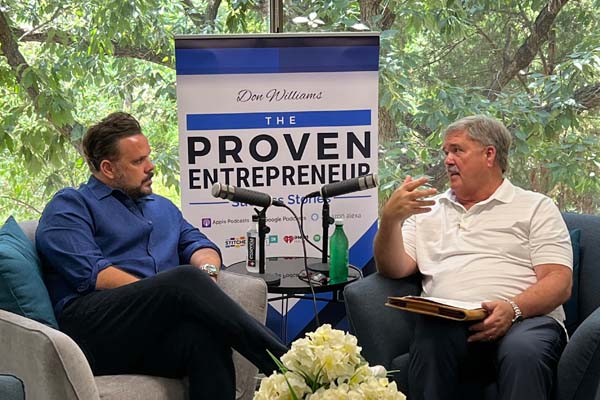
I love that act, that sharing. We’re all in the people business. We may think we’re in the restaurant business, the energy business, or whatever, but we’re in the people business. The more we take care of people, the better our businesses go. Those people are customers, employees, contractors, or whatever. Thinking back on your entrepreneurial journey, can you share a hard lesson, something that happened that was painful, but looking back, it may have a big positive, but at the moment, it was like, “This is going to hurt.” Maybe you hurt really bad. Do you have a lesson like that you can share with us? You don’t have to do them all. You can pick one.
There’s the song by Garth Brooks, Unanswered Prayers. There have been so many times when we have pushed to have a deal. When we’re trying to open a new project, there are a lot of costs upfront where you’re spending legal fees and architecture fees, and it could add up to $500,000. To spend that money when you’re a young company and a deal falls through at the 1-yard line, ouch.
That happened to us a couple of times early. All three of the deals that I can think of now, looking back, I’m so glad they didn’t happen because they would’ve cost us a lot more in the long run. We were hungry, trying to chase a deal, and we were willing to take maybe something that wasn’t quite a fit and try to make it fit.
One of the pieces of advice that I give to young entrepreneurs is patience is a key part of it. You want to be successful right away and you want these big deals or the sales to start coming in. It doesn’t happen that fast. It is having patience, having a measured approach, being thoughtful about every move you make, but not too thoughtful. There is a point where you get paralysis by analysis and you get stuck. Being thoughtful, moving forward at a steady, healthy pace, and being patient with the journey is such a huge part of it.
Patience is such a key part of being an entrepreneur. You want to be successful right away and you want these big deals or the sales to start coming in, and it really doesn't happen that fast. Click To TweetCounterintuitive to the average entrepreneur in a hurry, “Do it now.”
It does help internally. My company jokes about my partner and me that I’m the gas and he’s the brakes. He’s always the one that doesn’t want to do anything. I’m the one that wants to do everything. Because of that, we do balance each other out. It helps to have that person who’s the opposite approach that you are.
It’s key in most successful entrepreneurial firms that you have that balance of diverse skills and diverse personalities because we can’t be good at everything.
I don’t know how singular entrepreneurs do very successfully. That’s amazing to me, somebody that doesn’t have a good partner.
There are those single entrepreneurs who wouldn’t have partners. There are entrepreneurs who are partners who would not go alone. It is different strokes for different folks. If we looked into Kyle’s book of wisdom, what’s one nugget you could share with us?
Not to be redundant, but the idea is not that important. It’s how you execute that idea. It’s not flashy and interesting, but it’s the truth. You’ve got to execute that vision well to be successful. It takes a lot of discipline. It takes hard work. It takes educating yourself. It takes asking for advice from people in the industry or mentors. It takes a lot to execute well.
The idea is not that important. It's how you execute that idea. Click To TweetI always think improvement is pretty easy. Ask for help. Learn something new. Go do it. It’s that simple, but many people forget to ask for help.
Especially entrepreneurs, there’s ego and bravado to that person. I’m a case in point. Your natural instinct is, “I can do it. I can muscle my way through it. I know how to do it.” Realizing that you shouldn’t be the smartest person in the room takes a lot of humility and perspective. Frankly, it is once you start building out your team, getting your aces in their places, and letting them do what they were brought on to do.
Somebody gave me advice once. He was a Canadian guy, probably 65 to 70. He had started and sold multiple businesses, which were worth several billion dollars. I asked him the same question you asked me, “What advice would you give?” He said, “I learned that I never wanted to be the single point of failure in my company. I didn’t want everything funneling through me because I knew that I was going to mess up. If it all funneled through me, then it was going to get a bottleneck and there were going to be mistakes. I wanted to diversify and bring in talented people around and let those talented people do what they were there to do.” I thought that was pretty good advice and something that’s stuck with this.
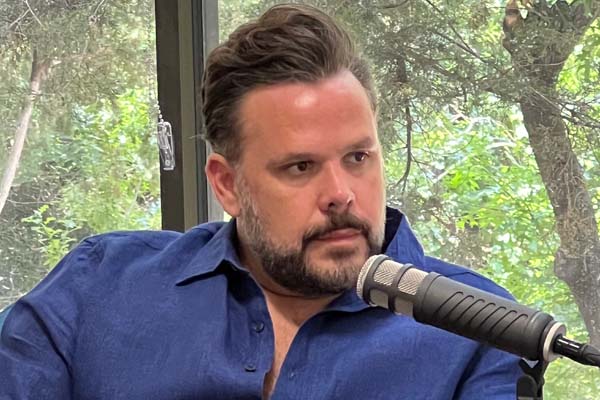
I’m going to put you in a time machine. I’m going to send you back the twenty-year-old Kyle. You get 60 or 90 seconds to tell twenty-year-old Kyle something you wish you knew then that you know now that would have eased or sped you along your path.
Twenty-year-old Kyle was fraternity at that point, drinking and partying way too much. I would probably say, “Get to class a little more. Maybe take a night off going and not to have too much fun.” Remember I was the social chair. I would’ve probably said, “Get your act together a little bit more,” back then. I’ll tell you, one of the things that was probably the greatest part of my early twenty years is I got married young and had kids young. I got married at 22, had my son at 23, and my daughter at 24. Because of that, you grow up real fast when you’re taking care of kids. That got me out of what could have been a troubling future because I’m a social animal. I’d to go meet people, have fun, and be out and about and that got me dialed in quickly.
Nothing like children to change everything.
I met the kids’ mom when I was twenty. I would go back and say, “Marry that woman. Have babies.”
How would our audience reach out to you?
Social media is best at Kyle Noonan, Instagram, Twitter, all the ones. You can check out our website, FreeRangeConcepts.com, and look at all our concepts and all the things that we have going on. We have lots going on. We are busy. We’ve now had a great team built out. We have around 1,500 employees and the team is in a position now where we have a lot of tenure. When we add somebody new, it’s rare. It’s a lot of internal promotions, which means that the company understands how it should be run. There’s a lot of continuity there, which makes mine and my partner’s job a lot easier.
I was having lunch with a friend, and he was asking how we structured ourselves. My partner and I are in the 3 to 5-year planning phase. We’re working on problems 3 to 5 years from now. The President CEO is 1 to 3 years, the directors are 6 months to 1 year, and then the general managers at the store level are 0 to 6 months. Because we break it up that way, unless a catastrophe happens like COVID, then, all of a sudden, that shrinks. You’re worrying about the next three days. In a perfect world, when things are running smoothly, being able to look longer down the road, you’re not as time-sensitive. There’s not as much pressure on you from the day-to-day. That has made my day-to-day a lot easier now that we’ve built out our company.
Continuity of your culture is so important. It is hard to get your company culture dialed in, but then you want to keep it.
We have employees that have been with us from day 1 and they’re still with us 10 to 11 years later.
They’ve forgotten things other people will never know at that point.
That helps a lot.
Congratulations on your success. Thank you so much for joining us.
Thanks for having me. I enjoyed it.
My pleasure. That’s our episode of The Proven Entrepreneur Show with Kyle Noonan. See you next time. Thanks.
Important Links
- FreeRange Concepts
- Bowl & Barrel
- MUTTS Canine Cantina®
- The Rustic
- The General Public
- Joe Leo Fine Tex Mex
- Kyle Noonan – Facebook
- Instagram – Kyle Noonan
- Twitter – Kyle Noonan
For information on how to work with Don visit Work With Don Williams
You can also reach out to Don Williams at https://donwilliamsglobal.com
Please join Don and his businesses in support of St. Jude’s Children Research Hospital in its Mission to cure Childhood Cancers. You can donate to St. Jude at stjude.org/donate
